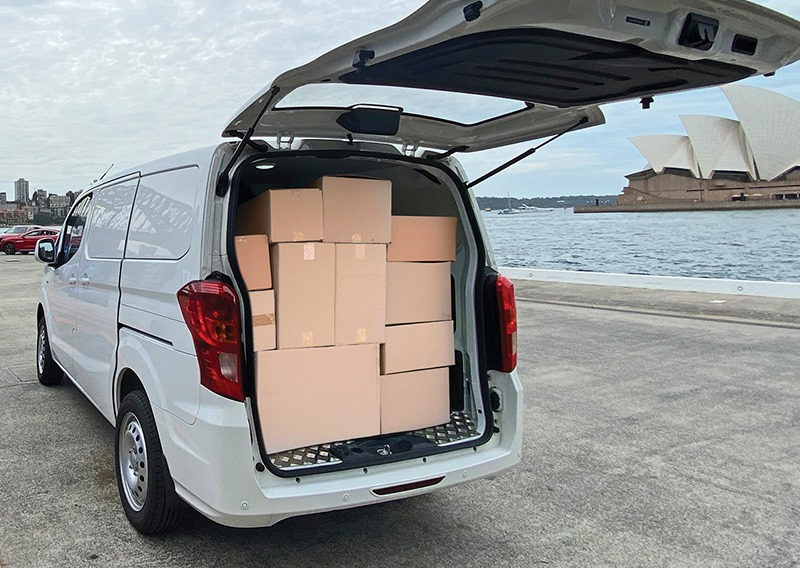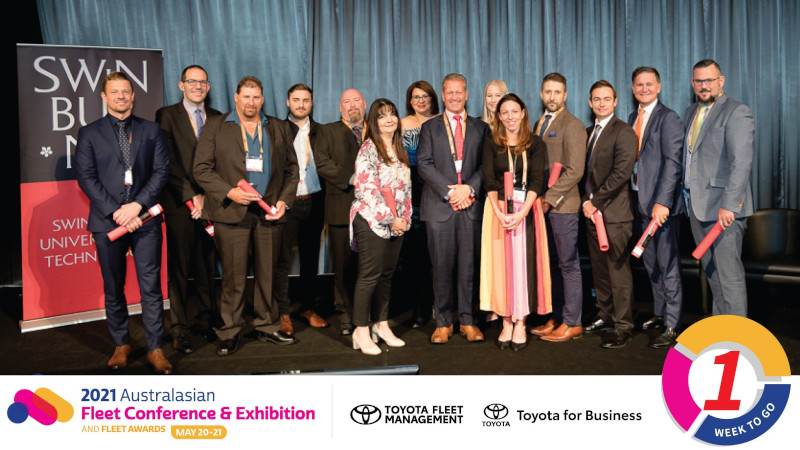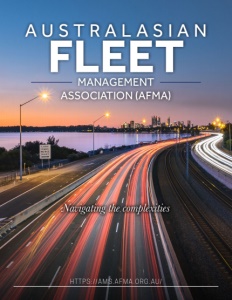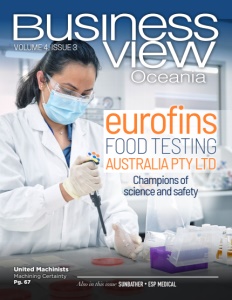Australasian Fleet Management Association (AfMA)
Navigating the complexities
Business View Oceania interviews AfMA Executive Director Mace Hartley for our focus on Strength & Growth in the Fleet & Transportation Management Industry
The Australasian Fleet Management Association (AfMA) is a member based, not-for-profit peak industry body throughout Australia, New Zealand and South East Asia. AfMA’s membership base is represented across all industries including Federal, State and Local Government and is responsible for the management of many hundreds of thousands fleet vehicles.
The Association’s charter is to promote Fleet Management as a profession in its own right, to provide knowledge, information and resources to its members and to lobby and advocate on behalf of the fleet industry. Under that purview, AfMA embraces the entire spectrum of the fleet industry by forging an inclusive relationship within the automotive industry, including manufacturers, importers, distributors and other suppliers. AfMA’s mission is both robust and meaningful: to assist members with strategies, networks and tools to shape the future of Fleet Management.
Business View Oceania spoke with AfMA Executive Director Mace Hartley about the value of the Association, industry insights and challenges, and how AfMA will continue to be a viable voice for its members in the future.
BVO: Can you give us an overview of AfMA and why it was founded?
Hartley: “To begin with, Fleet Management is very complex. You need to understand procurement and remarketing, you need to have some accounting skills to manage budgeting and forecasting, you need to have an understanding of policy development and HR. You definitely need to understand work health and safety, because the vehicle is a mobile workplace. AfMA essentially developed because of that complexity of the industry.
“We’re now in our 27th year – I’m the second Executive Director, so I’ve been around for seven years and my predecessor was here for 20 and was part of the start-up. The Association now has a staff of seven, including two part-timers. Along with myself as Exec. Director, I have a General Manager, a Relationship Manager, a full-time writer in the Philippines, a part-time writer here in Australia, a website graphic designer in the Philippines and we recently employed a person based in Sydney as an Industry Learning & Development Specialist. We all work remotely and keep in touch via Teams Meetings to maintain continuity of relationship and I think that’s the status of many people right now.”
BVO: Has the Association’s mission changed over the years?
Hartley: “The mission statement hasn’t changed. We’re still there to promote Fleet Management as a true profession and to educate those operating in Fleet Management. And importantly – we are a Fleet Management association not a Fleet Managers association. The difference is that we’re not just communicating with Fleet Managers, we’re communicating with everyone in the Fleet Management train. You may be the Fleet Manager responsible for millions of dollars of assets, but have no control over the drivers that often report to other frontline managers. We’re here to help inform our members and advocate on behalf of the industry. Those things have not changed in the 27 years.
“What has changed is how we go about that and our abilities to reach people and deliver the content in a timely manner and in a location that’s best for them. We host about 20 events a year, including three or four Professional Development Forums in each capital city, where we connect people with educated speakers on a variety of topics. And we host an annual conference and exhibition, which for the last 15 years has been in Melbourne and in 2022 will be in Sydney for the first time. During that conference, we hold educational sessions over two days and host our networking awards dinner where we present three industry awards with much celebration.”

BVO: How has COVID impacted your programmes?
Hartley: “COVID and technology has affected our members but it’s also affected us at AfMA and how we deliver. We started our webinar series in mid-2020 after COVID began and we’ve generally had an audience of 200 people on each one over the last two years. Our members are all over Australia, New Zealand, Southeast Asia, and one in Mauritius, so the moment you go to a webinar structure, you’re giving a broader audience access to something that’s quite meaningful. Typically, about 60 percent of people who register show up – which is double the industry best practice. So obviously we’re doing something right.
“Last year, in 2021, instead of those topics being fleet practitioner-based and supplier-based, we actually created a personal development series around emotional intelligence. That was good for any person in an organisation regardless of their seniority or their role. We had people referring their family members to it, even their children, because emotional intelligence is the start of self-understanding but it also helps you understand why other people react to certain things you do and say. So that was an amazing series. We had around 320 organisations tune in and some organisations have built that series into their learning and development plans for the year – and it’s totally free. So COVID did have a positive influence for us, in that regard.”
BVO: How would you describe your membership?
Hartley: “We have about 500 members – 30 percent of those are suppliers; 70 percent are people who own or manage their fleet of vehicles. Of those 70 percent fleet owners and operators, it’s about 50 percent governments of different sizes (Local, State, Federal) and the other 50 percent are private enterprise and not-for-profit organisations and NGOs. It’s a very diverse mix.
“We say that fleets are horizontal in a world of vertical enterprise. Everything transport does needs vehicles, but every other business you can think of needs cars. Sometimes it’s just to move salespeople, or deliver products – think of pathology labs. Pretty much every business out there has a fleet of vehicles. And fleets can be quite diverse. Some of our members, such as the CSIRO have cars, light commercial, heavy trucks, special equipment, watercraft, helicopters… and probably one of the strangest elements in the fleet came from Brisbane City Council who have a fleet of nine canines. So that’s very cool and unusual.”
BVO: Can you talk about sustainability challenges in the industry?
Hartley: “For many organisations, their transport is the Holy Grail of where they’re trying to reduce emissions. In Australia, we have a number of zero emissions vehicles and now we’re focusing on tailpipe emissions. That means hydrogen or battery electric vehicles. Today we have a range of those – Tesla being the most familiar name, but all the major automotive manufacturers have a couple. They’re more passenger vehicles, however, in the last year there are some SUVs being produced and many fleets are looking for small SUVs because they are a little higher off the ground and ergonomically better for drivers.
“What we haven’t seen is light commercial electric vehicles, yet. There are several under development, though, and that will be a gamechanger in this country, given that the bulk of government fleets are made up of light commercial vehicles. Last year, we doubled the number of EV sales from the year before but we’re still less than 1 percent of new vehicle sales.
“There’s also a big push here in Australia around hydrogen, which is a gas and takes only a few minutes to fill up the tank. Whereas, battery electric might take 15-20 minutes at a fast charger to get an 80 percent fill. That’s really difficult when you’re trying to have your vehicles on the road all the time. So in this country, we’re going to see hydrogen used for heavy trucks and buses where they’re moving all the time. Battery electric will be mainly light passenger vehicles.”

BVO: Where do you see the industry going in the next few years and how will AfMA continue to benefit your members?
Hartley: “The industry is going through a transformational change. We’re seeing older people retire and younger people coming through. That’s an exciting time but we’re also seeing a lot of knowledge leaving the industry. The excitement comes from the fact that younger people are more versatile in their views about how they might go about their job and embracing technology.
“Fleet Managers are middle management, not C-Level, and they’re responsible for everything but have no authority. So the future from an association point of view… we’ve got a task force looking at introducing Continuing Professional Development and developing some statuses – like an accountant becoming a CPA, for example – that would help recognize people’s commitment to the industry and the Fleet Management profession in general.
“As part of our advocacy work, AfMA is on the steering committee of the National Road Safety Partnership Program (NRSPP). That’s funded by government grants and it looks to take university research and studies and translate that into real world data that can be adopted and used by fleets to develop policies.
“All in all, the future looks very positive for Fleet Management. A lot of excitement ahead!”
AT A GLANCE
Australasian Fleet Management Association (AfMA)
What: A member-based, not-for-profit peak industry body
Where: Based in Melbourne, VIC
Website: https://ams.afma.org.au/




 This information will never be shared to third parties
This information will never be shared to third parties